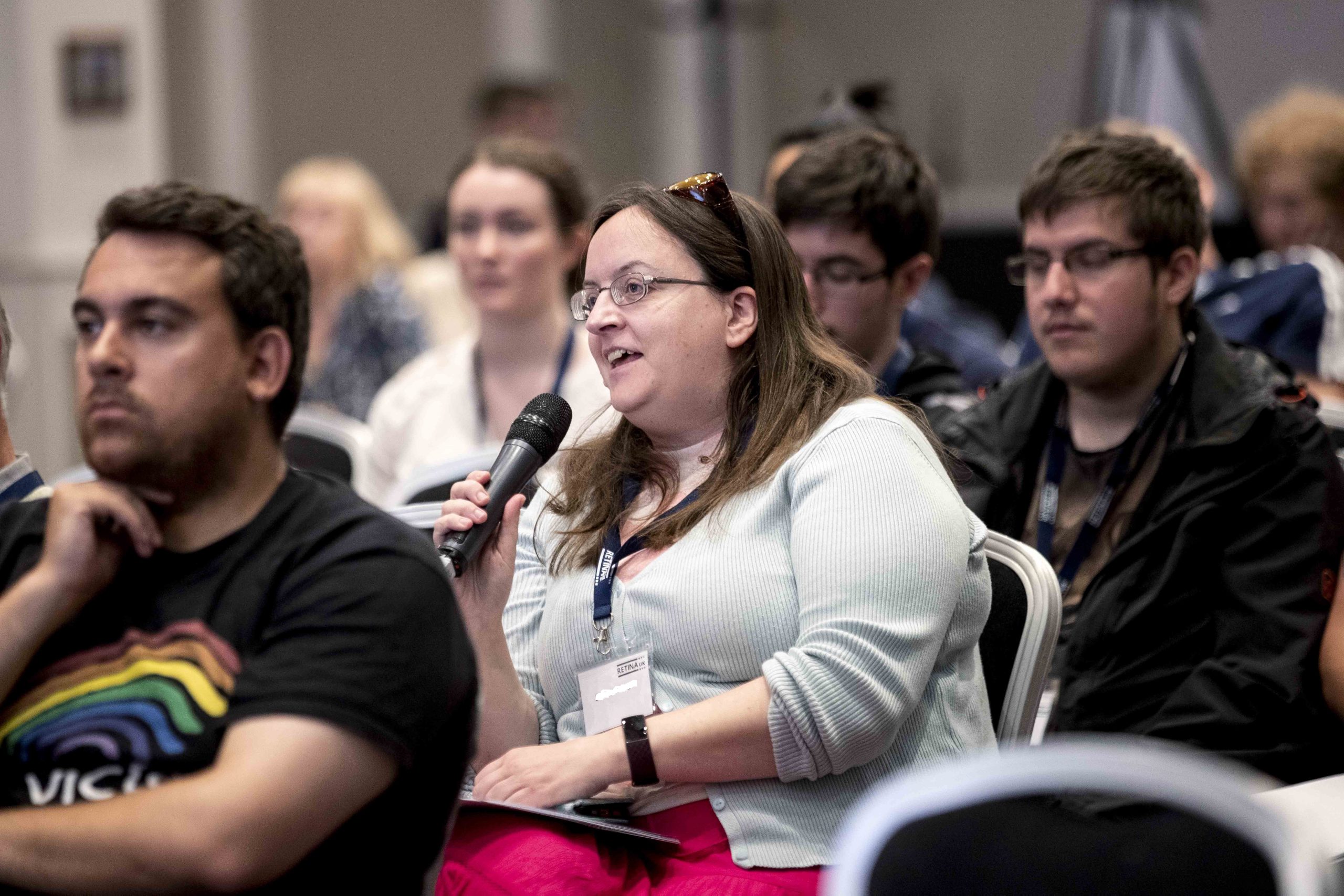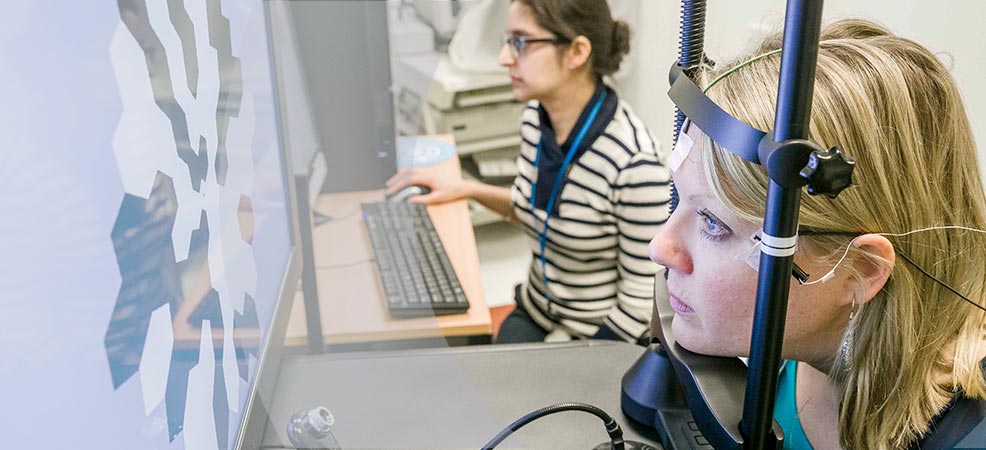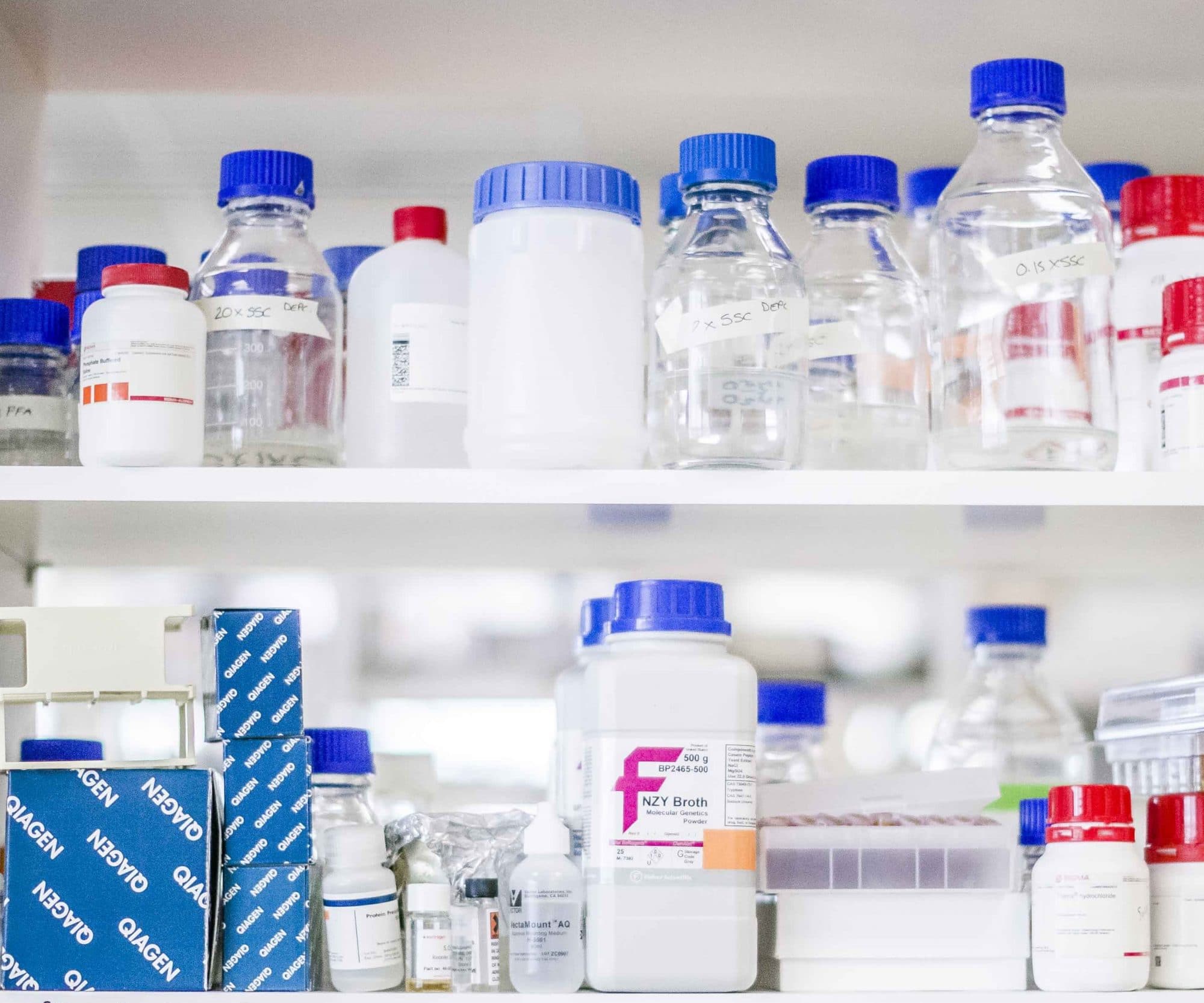The extent of vision loss varies from patient to patient, but is generally more rapid and severe than other forms of retinal disease. LCA accounts for 5% of all retinal dystrophies and 20% of blindness in school age children.
LCA is actually a term given to a group of diseases that are caused by mutations in at least 25 genes. The gene mutations lead to failure in function of the photoreceptor cells (rod and cone cells that detect light), ultimately causing cell degeneration. Given the severity of the condition, it is one of the most extensively researched inherited retinal disorders (IRDs), and a number of clinical trials are underway.
Symptoms
There are many different types of LCA, and the disease can present differently in different children. However, there are some basic symptoms that are often associated with LCA. These include nystagmus (involuntary jerky rhythmic eye movement), photophobia (sensitivity to light) and slow pupillary response to light. Eye-pressing and rubbing the eyes with a knuckle or finger can be common in babies and children who have very little vision.
This can cause damage to the cornea (keratoconus) and lens and may result in a loss of fatty tissue around the eyes causing the eyes to look deep-set.
The extent and progression of degeneration depends on the type of LCA the child has. However, children with LCA usually have severe vision loss of 20/400 or worse, meaning that they can see at 20 feet what a person with “normal” vision can see at 400 feet.
Cause
LCA is a very rare condition usually inherited in an autosomal recessive manner, meaning that a faulty copy of the gene must be inherited from both parents. It can be caused by a mutation in any one of a number of genes that are important for retinal function. There are rare incidences where the inheritance pattern may be autosomal dominant. Find out more at RetinaUK.org.uk/genetics/inheritance-patterns.
Treatment
There is one gene replacement therapy available on the NHS for a small proportion of people affected by LCA. This treatment, known as Luxturna, will only work for those whose LCA is caused by faults in the RPE65 gene, and who have a reasonable amount of viable retinal cells remaining.
Luxturna is administered via injection into the back of the eye under general anaesthetic. The treatment only needs to be given once but each eye is treated separately, a few days or weeks apart. There is a risk of side effects, including further sight loss, but if successful, the treatment can result in sustained improvement in functional vision, especially low light vision.
Clinical trials
Visit RetinaUK.org.uk/medical-research/joining-the-research-effort for clinical trials information. If you are considering joining a trial always discuss it with your usual ophthalmologist or family doctor first. Participation in a genuine clinical trial will never require payment.
You can also read about possible treatment approaches for retinal disease at RetinaUK.org.uk/medical-research/approaches-to-treatment and the latest news about research at RetinaUK.org.uk/research-news.
Many treatment approaches are specific to a particular gene fault, so it is important that those affected by the disease are referred for genetic testing so that they can access new treatments and clinical trial opportunities.
For support
The Retina UK Helpline provides information, support and signposting for people affected by inherited sight loss as well as healthcare and education professionals.
Contact 0300 111 4000 (9.00am – 5.00pm Monday to Friday and Tuesday and Thursday evenings 5.00pm – 8.00pm) or email [email protected].
Condition-specific information
Gene Vision gene.vision/knowledge-base/leber-congenital-amaurosis-lca-for-patients. Retina UK joint funded Gene Vision and input into accessibility and content.
Getting involved in research
Those who join the Retina UK Lived Experience Panel receive an email from us when we are made aware of participation opportunities such as focus groups, surveys and research projects. Sign up at RetinaUK.org.uk/get-involved/lived-experience.









